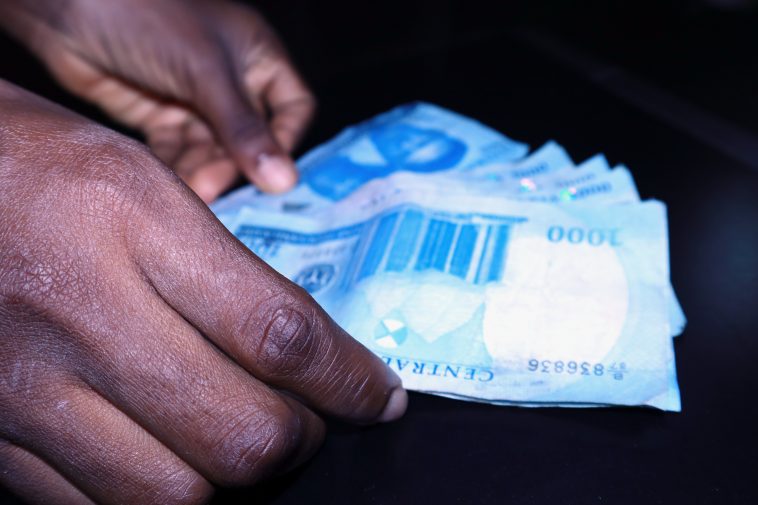Nigeria’s lack of cash has led to a rise in digital payments, and fintech companies have been very important in meeting the growing demand. Mxolisi Msutwana, the chief operating officer of Baxi, says that as the country moves toward cashless transactions, digital payment providers are taking the chance to make the Nigerian market more accessible and easy to use.
All over the world, states are trying to get people to pay without cash. They are doing this for several reasons, such as to increase financial inclusion and openness, to make the informal economy more official, and to boost economic growth and innovation.
Nigeria isn’t the only one. The Nigerian government wanted to move toward a cashless policy by the end of 2022 to get rid of cash. Early in 2023, there was a significant cash shortage because the Central Bank of Nigeria (CBN) was trying to make new banknotes and lower the amount of money you could take out of an ATM.
There weren’t enough new bills in circulation to meet the needs of a country like Nigeria, which has always relied heavily on cash. Even though the initiative was a step in the right way, it did cause problems.
The effects on the economy were far from good. S&P says that many protests left many Nigerians scrambling to find ways to pay for everyday items and services. Because of this, many people who had never used digital payment services had no choice but to start. Fintechs, in particular, stepped up and helped Nigerians meet a basic need when their lives had been thrown into chaos.
Nigeria’s Inter-Bank Settlement System (NIBSS) found that the number of mobile purchases increased by 125% in January compared to the same month the previous year. Bloomberg says mobile-money transactions have increased by a quarter to US$5.4 billion, or 2.5 trillion naira.
As the shortages end, it will be important for digital payment companies to ensure that the move to digital payments that happens, as a result, doesn’t go to waste. In Nigeria, where cash has been the primary way to pay for things for a long, they will have to work hard to keep the customers they’ve won in recent months and set themselves up for more rapid growth.
How digital payment providers evolved
Before looking at how digital payment companies can do this, it’s important to look more closely at how they did it in the past. It makes sense that the crisis was a big chance for digital payment companies that let people pay with their phones.
Bloomberg points out that only about 40% of Nigerians have bank accounts, while 117% of people in the country have cell phones. This gives them a chance to increase.
Those workers still had to work hard to ensure they could help the growing number of people who wanted to send and receive digital payments. MTN Nigeria, for instance, plans to send out 224 000 employees to help more people use mobile wallets.
At Baxi, we brought on a record number of agents, which made it easy for people to give and receive money. During that time, we also helped businesses find ways to collect payments by putting in place more point-of-sale (POS) terminals, letting customers pay by card and transfer, and letting merchants make account numbers for payment collections.
Of course, not every digital payment source had everything go as planned. A recent article in TechCabal said that many Nigerians were unhappy with how often digital transfers failed.
Cash will always be necessary.
Even with this rise, it’s important to remember how important cash has been in Nigeria for a long time. The FIS Worldpay Global Payments Report 2022 says that cash-based payments still comprised 63% of all POS transactions 2022, even though cashless transactions increased by 42%. That’s much higher than the average worldwide, which is 17.9%. It also puts Nigeria far ahead of the average for the Middle East and Africa region, where 44% of POS payments are made with cash.
The reasons why cash is so important in Nigeria are also ancient. They include not being able to get bank accounts (only 39% of Nigerians aged 15 and up have a regular bank account) and not trusting the formal economy. A large informal economy and problems with infrastructure also play essential parts, and the power of habit can’t be ignored.
In other words, companies offering digital payments and mobile money can’t just assume that the boom they’ve seen because of the cash shortage will continue. They can’t also expect that cash won’t be used. It will be an important part of Nigerian life for a long time.
Security, convenience, and increased access
When it comes to consumers, for instance, payment providers need to highlight that the day-to-day transactions that they enabled during the cash shortage were just the start of what they can offer.
It’s important to keep reminding people that digital payments are safer and more convenient, especially for big purchases.
But it’s also important to point out that digital payments have other perks. For example, customers can access audio and video streaming services without an official bank account. This is made possible by advanced integrations. In many cases, the promise of access to something you didn’t have before is a much stronger incentive than making it easier to do something you already do.
For businesses, security is also a benefit that can be brought up repeatedly. Especially for small companies, electronic channels make it easier to track the activities that bring in money.
Again, other important perks should be emphasized, such as the ability to automate takings. Having digital payment options can also make it easier for small businesses to become legal. This is because digital records are easier to keep track of. This makes it easier to get things like capital for growth.
Ultimately, digital payment providers have never had a better chance to show what they can do for customers and merchants. But they need to make the most of the opportunity they have. The best way for them to do this is not to make cashless necessary but to show how it can open up genuine possibilities.



